.jpg)
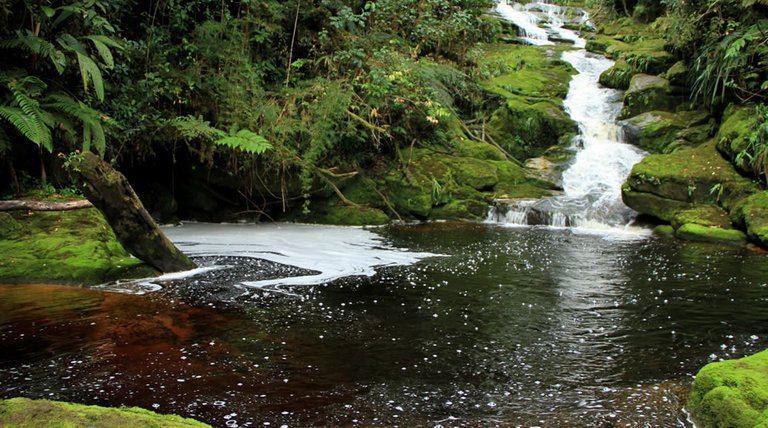 )
)It was declared El Guácharo National Park on May 27, 1975 to guarantee the continuity of the geological and biological processes that are carried out in the Guácharo Cave. For its part, Cerro Negro, where the Cueva del Guácharo is located, was the first Natural Monument in Venezuela on July 15, 1949, with the name of Alejandro de Humboldt. Alejandro Humboldt was a polymath: Prussian geographer, astronomer, humanist, naturalist and explorer
He is considered the "father of universal modern geography." He was a naturalist of extraordinary versatility, which did not repeat itself after his disappearance.
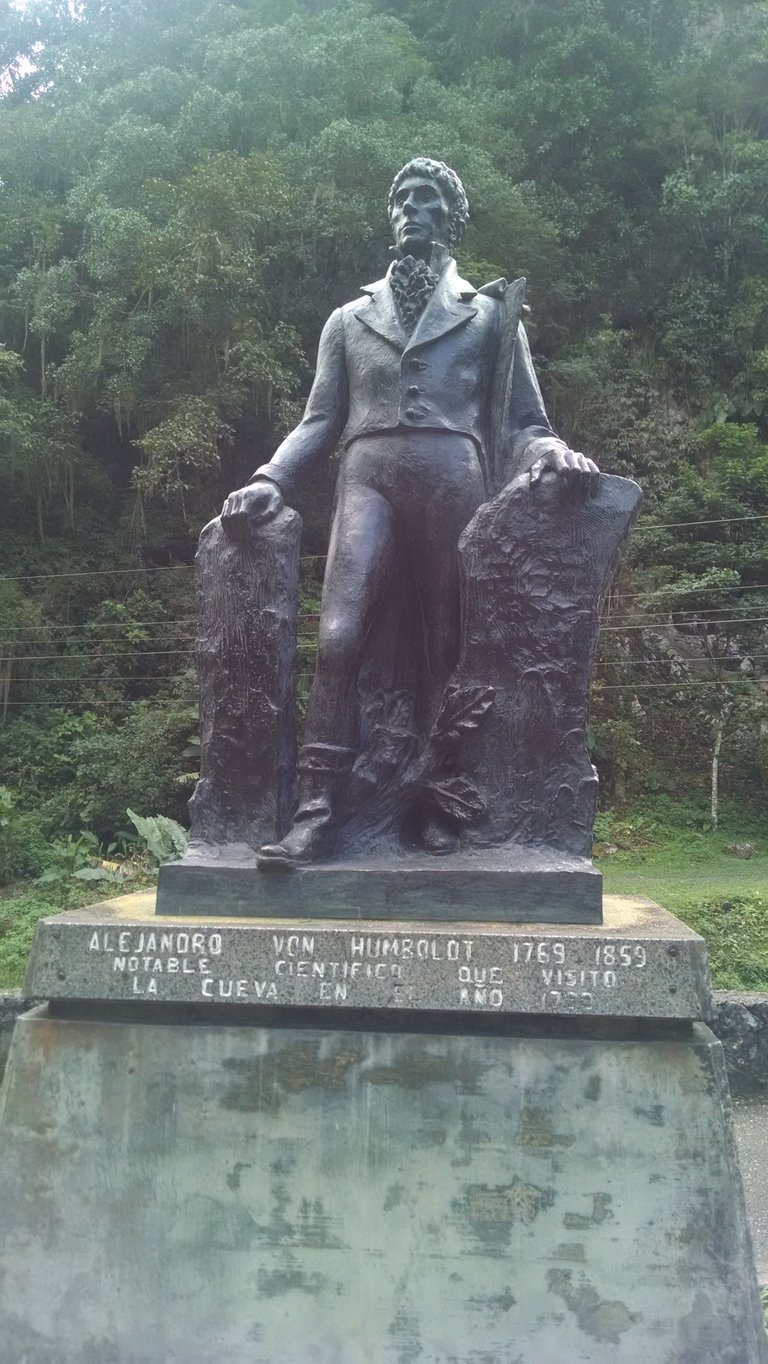
One of the outstanding features of this monument is that it serves as a habitat for the guácharo (Steatornis caripensis), hence the name of the cave, a bird of nocturnal habits adapted to live in darkness, which only leave the cave in twilight and night hours. when they go out in search of food. The guácharo produces in the cave an organic layer called guano, formed by vomited seeds and excrement that constitutes the basic nutrient of the ecosystem of the cave. Also live in this ecosystem some bats, insects, rodents, arachnids and coleoptera.
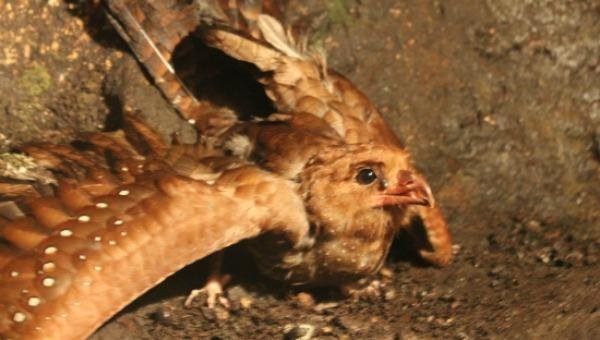
Thanks to its rich climate (its average temperature is 20 degrees Celsius) there are many orchids or the so-called May flower; recognized as the National Flower of Venezuela. Aside that it is used for the sowing of many fruits and vegetables
In front of the cave there is a beautiful waterfall that represents a nice place to share with the family. The route is also done by a road that is inside the mountain.
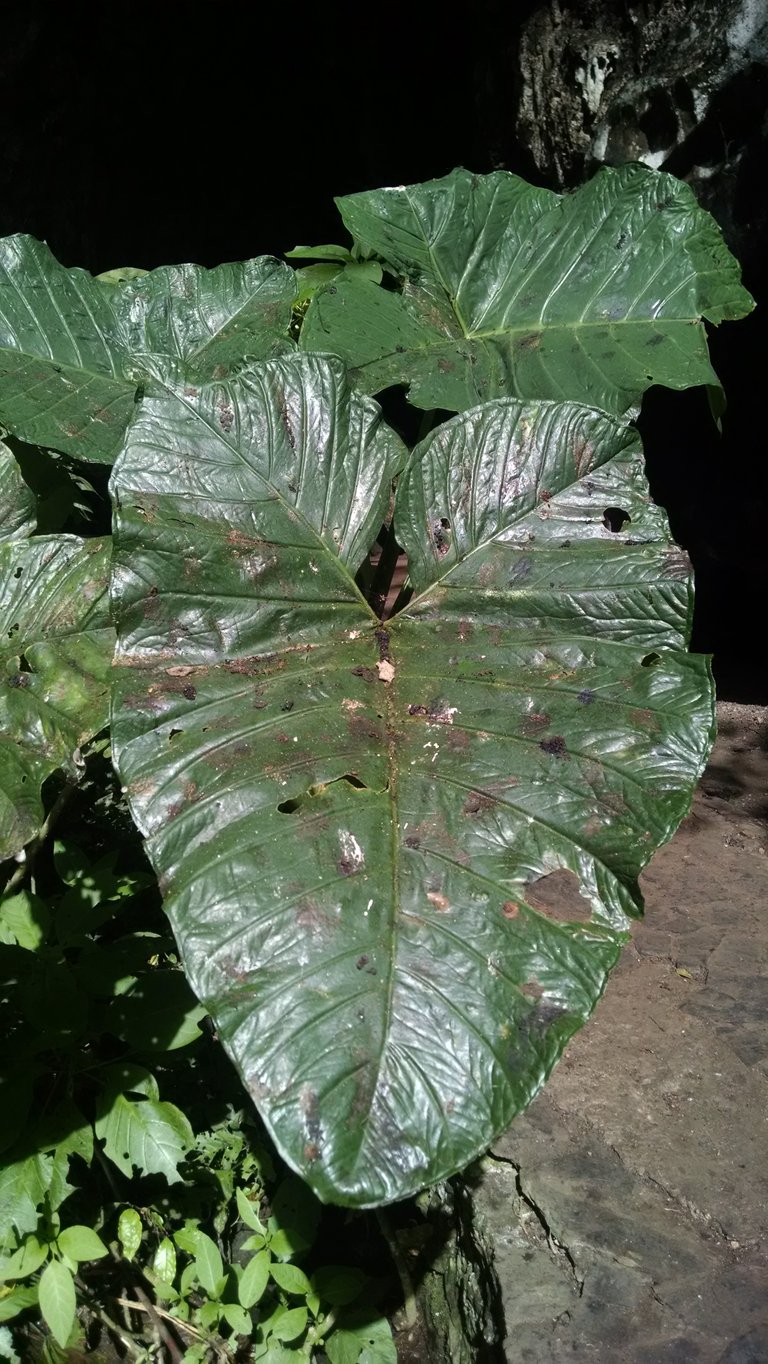
The Cave is subdivided into three large galleries, the Gallery of the Guacharo, the Gallery of Silence and the Gallery of the Beautiful Hall.
The drops that fall to the ground (in those places where they are not washed away by the underground rivers) still contain some calcium carbonate, which allows, by accumulation, the formation of stalagmites just below the stalactites. When both, after hundreds of thousands of years, come together, they form a column.
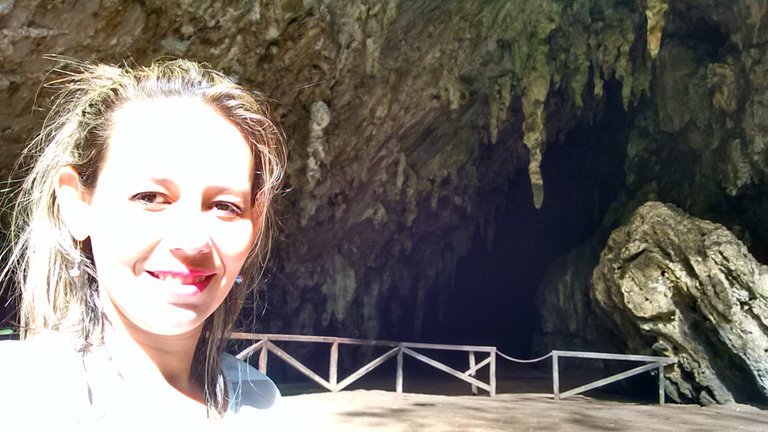
If you visit the Cueva del Guácharo, or some other similar cavern, you will see numerous examples of such forms or speleothems. But, please, do not try to break them to take them as a souvenir. Nature has taken thousands of years to create them, do not destroy them.
You got a 3.86% upvote from @buildawhale courtesy of @paolaf2!
If you believe this post is spam or abuse, please report it to our Discord #abuse channel.
If you want to support our Curation Digest or our Spam & Abuse prevention efforts, please vote @themarkymark as witness.
El pueblo, el clima y hasta la cueva son lugares fantástico. Y les recomiendo tomar un desvío hacía las puertas de miraflores.
Congratulations @paolaf2! You received a personal award!
Happy Birthday! - You are on the Steem blockchain for 1 year!
Click here to view your Board
Congratulations @paolaf2! You received a personal award!
You can view your badges on your Steem Board and compare to others on the Steem Ranking
Vote for @Steemitboard as a witness to get one more award and increased upvotes!